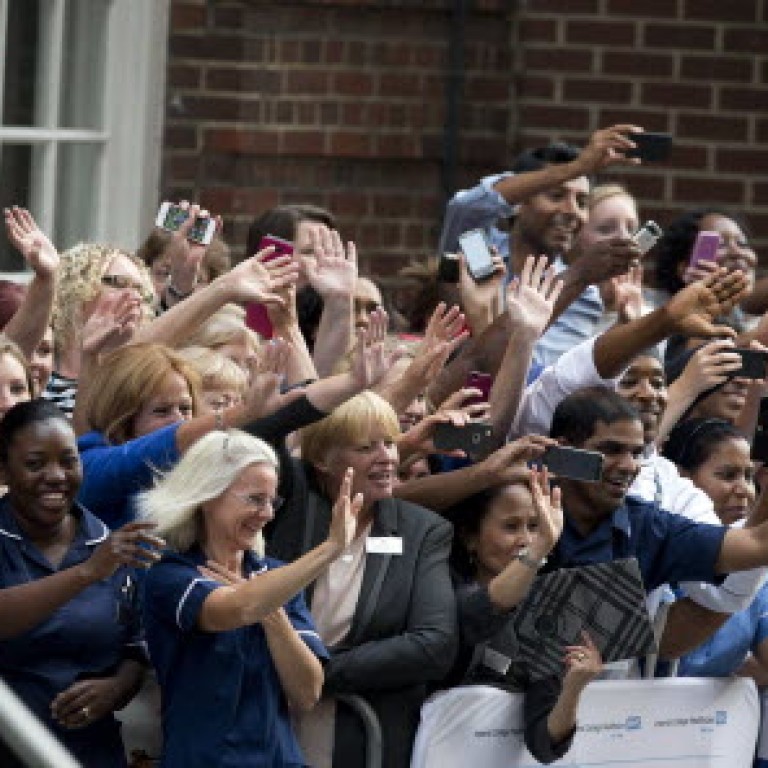
Love for one's country cannot be forced
Michael Chugani says true patriotism grows naturally and forcing it for political reasons can only be counterproductive
On the day Britain's royal baby was born, I wondered about patriotism. A Chinese-language radio station quoted a mainland official repeating the tired line of the need to love Hong Kong and China. TV news images showed ecstatic Britons popping open champagne bottles to celebrate the birth of their future king. Cheering crowds waited outside the hospital for their first glimpse of the royal baby. The rejoicing was spontaneous. No one told them to love their country or future king. They just did.
It reminded me of my many years living in the US as a naturalised American. Sometimes, on the 4th of July Independence Day, I would put up an American flag like most of my neighbours. No one asked me to. I just wanted to. Most people let love of country lie dormant inside them. The patriotism is brought to the fore by events such as the birth of a royal baby or the September 11 terrorist attack on America. The terror attacks certainly did that with me.
But for me, love of country turned to loathing of George W. Bush's "war on terror", which provided the cover for widespread civil rights abuses. Thankfully, I sat out much of this "war on terror" by returning to Hong Kong. Patriotism reawakened and swelled inside me on the night Barack Obama was first elected president. But it is again beating an anguished retreat with the revelations by whistle-blower Edward Snowden of widespread US cybersnooping.
The point of it all is that patriotism has a mind of its own. It can ebb and flow. Most Hongkongers go about their daily lives without thinking of themselves as Chinese patriots, but when China puts an astronaut in space or wins gold medals, they swell with pride. The thing to remember, though, is that patriotism is spawned inside of you voluntarily. People let it grow for their own reasons. It cannot be drilled into you, unless you live in North Korea.
That is why the inclusion of patriotism as a factor in our democracy debate has made it such a slippery slope. We are told only those who love Hong Kong and China can qualify as candidates in Hong Kong's first universal suffrage election for chief executive in 2017. It goes without saying that our top leader should love the country. Saying it throws a spanner in the works and that is exactly what has happened.
Never mind defining patriotism, how do you measure it? How much of a patriot are you if you joyously celebrate when China lands someone on the moon but also march in protest against the mainland's abusive treatment of dissidents? Many of today's self-proclaimed patriots were supporters of the British colonialists and who acquired foreign passports after the Tiananmen crackdown. Does belated love of country for political expediency qualify someone as a chief executive candidate?
China's many achievements provide much fodder to make its people proud. But it must allow that patriotism to spawn naturally. Requiring it would only douse the flame. I have never seen anyone here hang up a Hong Kong or China flag outside their window. Hopefully, the day will come when Hongkongers display flags on handover anniversary day as Americans do on Independence Day.

